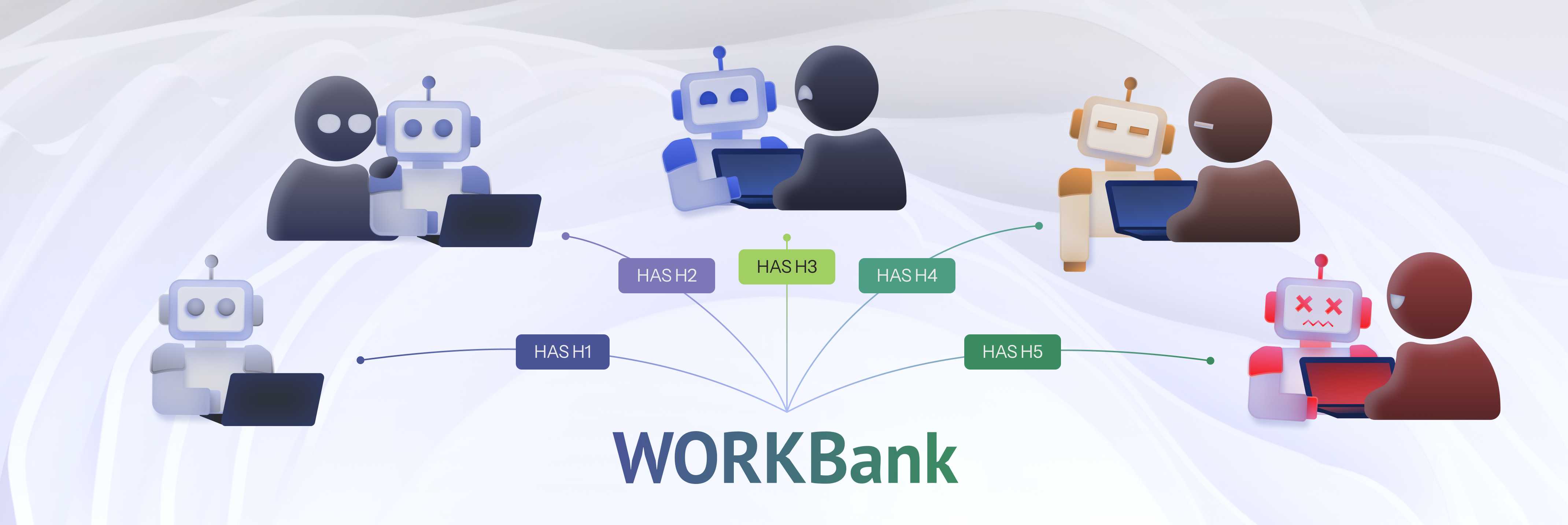{}
WORKBank (AI Agent Worker Outlook and Readiness Knowledge Bank) is a database that captures worker desire and technological capability of AI agents for occupational tasks.
The current version of WORKBank includes preferences from 1,500 U.S. domain workers and capability assessments from AI experts, covering over 844 tasks across 104 occupations collected between January and May 2025. This database stems from our project detailed in Future of Work with AI Agents: Auditing Automation and Augmentation Potential across the U.S. Workforce that introduces a novel auditing framework to assess which occupational tasks workers want AI agents to automate or augment, and how those desires align with the current technological capabilities.
WorkBank Database and Code
To download a data file, use:
from datasets import load_dataset
worker_desire = load_dataset("SALT-NLP/WORKBank", data_files="worker_data/domain_worker_desires.csv")["train"]
expert_ratings = load_dataset("SALT-NLP/WORKBank", data_files="expert_ratings/expert_rated_technological_capability.csv")["train"]
task_meta_data = load_dataset("SALT-NLP/WORKBank", data_files="task_data/task_statement_with_metadata.csv")["train"]
Our github repository contains our Code Book and the code used for analysis and plotting of diagrams.
Want to Launch the Audit in Your Organization?
Unlike traditional surveys, our auditing framework features an audio-enhanced interface and combines quantitative ratings with analysis of audio transcripts. This approach enables more calibrated and context-rich responses. We are also working to support input from additional modalities.
If you're interested in deploying the audit to explore the future of work within your organization, feel free to fill out the interest form.
Citation
Please cite our paper if you use this code or part of it in your work:
@misc{shao2025futureworkaiagents,
title={Future of Work with AI Agents: Auditing Automation and Augmentation Potential across the U.S. Workforce},
author={Yijia Shao and Humishka Zope and Yucheng Jiang and Jiaxin Pei and David Nguyen and Erik Brynjolfsson and Diyi Yang},
year={2025},
eprint={2506.06576},
archivePrefix={arXiv},
primaryClass={cs.CY},
url={https://arxiv.org/abs/2506.06576},
}
